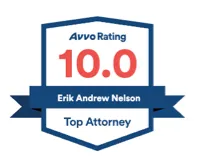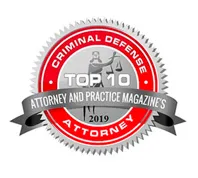When we consider the significance of a strong defense, we see how it can significantly impact our future by upholding our rights and guiding us through the complexities of the legal system. From comprehending the charges against us to meticulously challenging evidence, a dedicated defense attorney plays a pivotal role. They don’t just advocate in court; they negotiate with prosecutors and offer essential support even after a conviction. But how exactly does a robust legal strategy come together, and what steps are involved in protecting our future? Let’s explore this vital process in more detail.

Key Points
- Prevent Wrongful Convictions: A strong defense prevents wrongful convictions by thoroughly investigating and challenging the prosecution’s evidence.
- Ensure Fair Trial: By adhering to lawful procedures and protecting rights, a strong defense ensures a fair trial for the defendant.
- Negotiate Favorable Outcomes: Skilled negotiations can lead to reduced charges, lesser sentences, or alternative resolutions, safeguarding future opportunities.
- Preserve Professional Opportunities: Clearing or reducing charges helps maintain employment prospects and professional licenses, protecting future career paths.
- Support Rehabilitation: Post-conviction support and resources facilitate rehabilitation, fostering reintegration into society and providing second chances.
Understanding the Charges
Understanding the charges against you is the first step in mounting a strong defense. When faced with criminal charges, whether they’re misdemeanors or felonies, it’s essential to grasp their specific legal definitions and associated penalties. This understanding forms the foundation of our defense strategy. Our defense attorney plays a pivotal role in this process, meticulously analyzing the charges and the legal language used. This detailed examination enables us to identify any weaknesses in the prosecution’s case.
Additionally, our lawyer will examine law enforcement methods used during the arrest to verify that your rights weren’t violated.
We must remember that for a conviction, every element of the alleged crime must be proven beyond a reasonable doubt. This standard of proof is a cornerstone of our legal system, and our understanding of the law allows us to challenge any gaps or inconsistencies in the prosecution’s case. By pinpointing these weaknesses, we can craft an effective defense strategy tailored to our unique situation.
In this journey, understanding the charges isn’t just about legal definitions; it’s about safeguarding our future. By fully comprehending what we’re up against, we empower ourselves to navigate the legal process confidently, confirming that our rights are upheld and our criminal defense is as strong as possible.
Investigating the Case
When we investigate the case, we start by gathering important evidence like witness statements and forensic reports. Interviewing key witnesses helps us uncover essential information, while consulting expert testimonies provides valuable insights to strengthen our defense. This thorough approach guarantees we identify weaknesses in the prosecution’s case and build a solid defense strategy.
Additionally, providing personalized attention to each case allows us to tailor our approach to the unique circumstances of each client. This systematic process not only bolsters our defense but also reassures our clients during challenging legal moments.
Gathering Crucial Evidence
Gathering essential proof forms the foundation of a robust defense strategy. When we initiate the process of gathering proof, our first step is to collect all relevant documentation, including witness statements and forensic reports. These pieces of proof serve as the groundwork for constructing a compelling defense. By meticulously collecting proof, we guarantee that every detail is taken into account, thereby strengthening our position.
To further solidify our defense, we consult with experts who can provide specialized testimonies. These professionals, ranging from forensic analysts to medical specialists, offer insights that can validate our findings and provide credible support in court. Their testimonies often make the difference between a weak and a strong defense.
Independent investigations are another essential aspect. Conducting our own investigations allows us to uncover any overlooked details and verify the accuracy of the information we’ve gathered. This thorough approach ensures that our defense is as thorough as possible.
The quality of the proof we gather directly impacts our defense strategy and, ultimately, our client’s future. By focusing on detailed, objective, and precise proof collection, we build a defense that stands up to scrutiny and provides the best possible outcome.
Interviewing Key Witnesses
Interviewing key witnesses is a critical step in investigating the case and gathering firsthand accounts that can make or break our defense strategy. Witness testimonies provide invaluable insights into the events surrounding the alleged crime, helping us build a strong defense. By meticulously interviewing key witnesses, we can identify potential inconsistencies or discrepancies that could undermine the prosecution’s narrative.
Expertly conducted witness interviews are essential for uncovering details that support our legal strategy. These interviews open a window into the facts, allowing us to challenge the prosecution’s evidence effectively. Understanding the nuances in witness statements can be the difference between a successful defense and a conviction.
Here’s a detailed comparison of the potential outcomes:
| Critical Aspects | With Thorough Interviews | Without Comprehensive Interviews |
|---|---|---|
| Accuracy of Testimonies | High | Low |
| Defense Strategy | Strong | Weak |
| Ability to Challenge | Effective | Limited |
The information we gather from these interviews is pivotal. It not only strengthens our case but also fosters a sense of justice and clarity. By diligently interviewing key witnesses, we stand a better chance of protecting our future and achieving the best possible outcome. Let’s make sure our approach is thorough and precise, leaving no stone unturned.
Consulting Expert Testimonies
Consulting expert testimonies is an essential aspect of our investigative process, offering specialized knowledge and insights that are vital to our defense strategy. Expert testimonies play a key role in analyzing complex evidence and offering informed opinions that can greatly influence the case outcome.
By consulting experts in fields such as forensics, psychology, and finance, we can uncover key information that may otherwise go unnoticed. These experts bring a depth of understanding that enables us to challenge prosecution evidence effectively. For instance, a forensic expert can meticulously analyze physical evidence, while a psychologist might provide insights into behavioral aspects pertinent to the case.
Their authoritative perspectives not only strengthen our defense strategy but also lend credibility and weight to our arguments in court. Moreover, expert testimonies contribute to building a strong defense by presenting evidence in a clear, concise manner that resonates with judges and juries.
This specialized input helps us construct a compelling narrative that supports our client’s position, reinforcing the overall integrity of our defense. By leveraging expert testimonies, we enhance our ability to protect your future, ensuring every detail is meticulously examined and expertly presented.
Challenging Evidence
Challenging evidence is a critical aspect of mounting a robust defense strategy. We must focus on contesting the prosecution’s evidence to create reasonable doubt in the minds of the judge or jury. By questioning the credibility of witness testimony, we can highlight inconsistencies and potential biases that may affect the case’s outcome. Witnesses can sometimes misremember details or have motives that skew their accounts, and it’s our task to bring these issues to light.
Forensic evidence, often perceived as irrefutable, also warrants scrutiny. We need to examine the methods used to collect and analyze this evidence, as errors or biases can lead to unreliable results. By disputing the reliability of forensic evidence, we can further weaken the prosecution’s case.
Additionally, defense counsel plays a pivotal role in safeguarding constitutional rights and developing tailored strategies to contest evidence effectively.
Our role as defense attorneys is to meticulously identify and exploit these weaknesses. Effective challenges not only raise doubts but also secure that the prosecution can’t rely on flawed evidence to secure a conviction. By doing so, we can protect our clients’ futures and ensure that justice is served.
A strong defense, built on thorough and strategic evidence challenges, is essential in minimizing the impact of criminal charges.
Developing a Legal Strategy
While challenging the evidence is a fundamental step in our defense approach, the next phase focuses on developing a legal strategy that encompasses a broader perspective. Crafting a thorough legal strategy is vital to building a strong defense and safeguarding your future in criminal cases. This involves several key steps:
- Identify Legal Defenses: We’ll assess potential legal defenses like self-protection, absence of intent, and constitutional violations. These elements can form the backbone of our defense plan.
- Analyze Case Details: By meticulously scrutinizing the case details, we can pinpoint weaknesses in the prosecution’s arguments. This careful examination allows us to challenge the evidence effectively and develop counterarguments.
- Prepare for Negotiation and Trial: A well-developed legal strategy can help us negotiate favorable plea deals and secure better outcomes in court. Preparation is essential; we’ll prepare thoroughly for both negotiation and trial to make sure we’re ready for any scenario.
Working with experienced criminal defense attorneys, such as those at Kassman Law, ensures our legal strategy is tailored to maximize your chances of a positive outcome. By focusing on protecting your future, we can safeguard your rights and maintain your prospects. A strong defense plan isn’t just about reacting; it’s about being proactive and strategic.
Role of Defense Attorneys
In the intricate realm of criminal defense, the role of defense attorneys is essential in safeguarding justice and upholding the legal rights of clients. Their legal proficiency enables them to offer expert advice, craft customized defense strategies, and advocate fervently on behalf of their clients.
A skilled defense attorney doesn’t just represent; they engage in discussions with prosecutors, participate in plea bargaining, and prepare thoroughly for trial.
We depend on these professionals to analyze evidence critically, challenge the prosecution’s case effectively, and present compelling legal arguments. This analytical approach guarantees that every aspect of the case is examined, exploring all avenues in the pursuit of a fair trial.
By employing such detail-focused tactics, defense attorneys can often reduce penalties, secure favorable outcomes, and protect our futures during legal proceedings.
Defense attorneys’ role extends beyond the courtroom. Their dedication to protecting your rights means they’re constantly working to ensure that legal procedures are followed correctly and that justice is truly served.
Their commitment to their clients is a tribute to their importance in the legal system. Let’s appreciate the significance of having a skilled defense attorney by our side when maneuvering through the intricacies of the criminal justice system.
Protecting Your Rights
Building upon the central role of defense attorneys, safeguarding your rights in the criminal justice system demands meticulous attention to legal protections and due process. We grasp that guaranteeing due process is crucial in preventing unlawful searches and challenging the prosecution’s evidence. This safeguard maintains the fairness and integrity of legal proceedings, guaranteeing that one’s rights are upheld throughout the trial.
An experienced attorney is essential in navigating these legal procedures. They guide us through intricate processes and advocate for our fair treatment. Specifically, safeguarding your rights involves several critical steps:
- Preventing Unlawful Searches: A competent defense attorney ensures that any evidence obtained unlawfully is contested and potentially excluded from the trial.
- Challenging Prosecution’s Evidence: An attorney examines the evidence presented against us, ensuring it complies with legal standards and questioning its admissibility.
- Providing Courtroom Representation: Effective representation ensures our rights are upheld during legal proceedings, impacting the trial’s outcome.
Preserving our legal rights can significantly impact the case, ensuring lawful procedures are followed and shielding us from potential misconduct.
We must rely on legal professionals to maintain fairness and adherence to legal standards, ultimately influencing the trial proceedings and potential sentencing.
Negotiating With Prosecutors
When negotiating with prosecutors, our focus should be on securing plea deals and effectively reducing charges. By employing strategic negotiation techniques, we can often achieve favorable outcomes, such as lower penalties or alternative sentencing options. This approach not only benefits our clients but also helps avoid the uncertainties of a trial.
Securing Plea Deals
Securing a plea deal often hinges on tactical negotiation with prosecutors, aiming to reduce charges or penalties in exchange for a guilty plea. Plea bargaining is a critical strategy in our legal toolkit, and it can significantly impact the outcome of a case. By leveraging skilled negotiation tactics, we can often achieve lighter sentences, reduced fines, or even the dismissal of certain charges.
When working on securing plea deals, we consider several key factors:
- Evidence Strength: Strong evidence against the defendant makes securing a favorable deal more challenging, but not impossible.
- Defendant’s Criminal History: A clean or minimal record can be a powerful bargaining chip, suggesting that leniency is warranted.
- Cooperation: Demonstrating cooperation with the legal process can influence prosecutors to offer more favorable terms.
Plea bargaining helps expedite the legal process, reducing the court’s backlog and providing a more predictable outcome for all parties involved. It’s a complex dance that requires legal expertise and strategic advocacy.
Reducing Charges Effectively
Effectively negotiating with prosecutors can be the linchpin in reducing charges and mitigating the long-term impact on your future. Skilled defense attorneys excel at leveraging discussions to secure plea deals that lessen the severity of the charges against you. By focusing on plea bargaining, we can often avoid the uncertainties and potential consequences of going to trial.
Our ability to engage in constructive discussions with prosecutors is essential. We aim to present compelling arguments that highlight mitigating factors, pushing for reduced charges. This approach often leads to alternative sentencing options, such as probation or community service, which can protect your record and maintain your future opportunities.
In many cases, a well-negotiated plea deal can be more advantageous than a trial. It minimizes risks and provides a clearer path to resolution. These discussions demonstrate the importance of a strong defense strategy in shaping the outcome of your case.
By prioritizing effective communication and strategic planning, we can markedly influence the final decision, showcasing the pivotal role of a robust defense in safeguarding your future.
Ultimately, engaging in adept discussions with prosecutors underscores our commitment to achieving the best possible outcome for you.
Trial Preparation
Thorough trial preparation is the cornerstone of a robust defense strategy. Ensuring a strong defense means meticulous planning, organizing evidence, and formulating strategic arguments. Skilled attorneys know that these elements are essential for presenting a compelling case in court.
To achieve this, we focus on several critical tasks:
- Preparing Witnesses: We coach witnesses on how to present their testimony clearly and confidently, anticipating the prosecution’s questions to mitigate any surprises.
- Conducting Mock Trials: These simulations help us gauge the strengths and weaknesses of our arguments, refining our approach to guarantee maximum impact during the actual trial.
- Pre-Trial Motions: Skilled attorneys file motions to suppress inadmissible evidence or to dismiss charges when appropriate, shaping the trial’s framework to our advantage.
Trial preparation isn’t just about understanding the case; it’s about mastering every detail. We strategize on how to present evidence most effectively, craft legal arguments that resonate with the jury, and anticipate the prosecution’s moves.
This comprehensive approach ensures our defense isn’t just strong but also adaptable to any courtroom challenge. By committing to thorough trial preparation, we lay the groundwork for a defense that vigorously protects our client’s rights and future.
Post-Conviction Support
When the trial concludes, our commitment to defending our clients doesn’t end. Post-conviction support becomes essential for ensuring our clients have a path to a brighter future. Our services include assistance with appeals, sentence reductions, and record expungement. Skilled legal professionals guide clients through the complexities of the post-conviction process, offering a lifeline for those seeking justice beyond the initial verdict.
We prioritize access to resources necessary for post-conviction relief. Filing appeals or seeking new trials demands meticulous attention to detail and expert knowledge of legal intricacies. Our team advocates vigorously for leniency during sentencing and explores every opportunity for rehabilitation, recognizing that a conviction shouldn’t define a person’s future.
Comprehensive support extends beyond legal maneuvering. We focus on protecting our clients’ rights and providing a framework for them to rebuild their lives. Whether it’s through record expungement to clear a path for employment or reducing sentences for a second chance, our goal remains steadfast: to support and empower those we represent.
In essence, post-conviction support is about more than legal procedures; it’s about fostering hope and facilitating a return to normalcy for our clients. Together, we navigate the road to recovery and renewal.
Frequently Asked Questions
How Do You Build a Strong Defense?
We build a strong defense by thoroughly investigating, gathering evidence, and crafting strategies tailored to each case. We engage expert witnesses, negotiate with prosecutors, and protect rights during trial, ensuring we challenge biases and utilize legal resources effectively.
Which Lawyer Wins Most Cases?
Finding a lawyer who wins most cases is like hunting for a needle in a haystack. We need to analyze their experience, expertise, and track record. Look for those with positive online reviews and relevant case results.
What Tactics Do Lawyers Use?
We employ tactics like gathering evidence, challenging its validity, questioning witnesses, negotiating plea deals, and preparing meticulously for trial. Our strategic planning and legal expertise create reasonable doubt, protecting our clients’ rights and seeking favorable outcomes.
How to Defend Against Theft?
We should focus on proving lack of intent, gathering evidence, and employing effective negotiation tactics. Legal representation will safeguard our rights and help us achieve better outcomes by preparing thoroughly for court.
Takeaway
Simply put, a strong defense is our lifeline to securing the best possible future. By carefully understanding the charges, investigating the case, challenging evidence, and developing a robust legal strategy, we guarantee our rights are protected and our voices are heard. Our defense attorneys tirelessly negotiate with prosecutors, prepare for trial, and offer unwavering post-conviction support. Together, we can face the music and work towards a brighter, more secure tomorrow.







